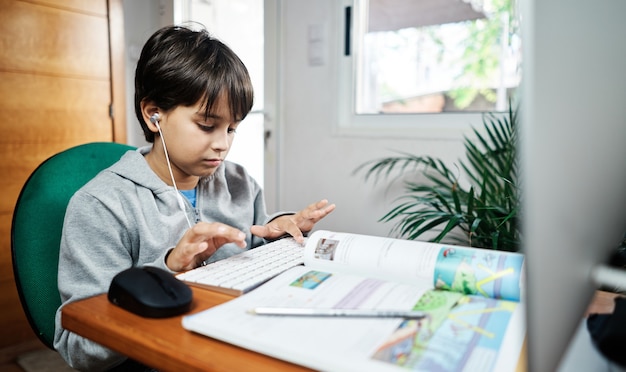Sampoerna Academy, a leading international school in Indonesia, is known for its commitment to providing students with a well-rounded education that includes strong research skills.
The school's elementary program places a strong emphasis on teaching students the skills they need to become independent learners and critical thinkers.
One of the ways that Sampoerna Academy teaches research skills to elementary students is through its inquiry-based learning approach. This method encourages students to ask questions, explore their curiosity, and seek out answers through research and investigation.
For example, students might be asked to conduct research on a particular topic, such as the effects of pollution on the environment, and then present their findings in a class report or presentation.
Another key aspect of the school's approach is the use of technology in the classroom. Students are given access to a wide range of digital resources, such as online databases, e-books, and educational apps, which they can use to conduct research and gather information.
This not only helps students to become more proficient in using technology, but also allows them to access a wealth of information that would otherwise be unavailable to them.
In addition to these methods, Sampoerna Academy also provides students with regular opportunities to work on research projects and assignments.
This allows students to apply their skills in a practical setting, and helps them to develop the confidence and independence they need to succeed in the future.
Sampoerna Academy's focus on research skills is just one of the many ways in which the school is preparing its students for success in the 21st century.
By providing students with the tools they need to become independent learners and critical thinkers, the school is helping to ensure that they are well-equipped to succeed in a rapidly-changing world.




Importance of Research Skills for Elementary Students at international school in Indonesia
Research skills are critical for elementary students at international schools in Indonesia, as they provide the foundation for academic success and lifelong learning. Having strong research allows students to become independent learners who are able to access, evaluate, and use information effectively. This is particularly important in an international school setting, where students are exposed to a wide range of cultures, languages and perspectives. Research skills also play an important role in helping students to develop critical thinking and problem-solving abilities. By conducting research and gathering information, students are able to analyze and evaluate different perspectives and ideas. This helps them to make informed decisions, form well-reasoned opinions, and solve problems in a creative and effective way. In addition, research skills are becoming increasingly important in today's globalized and fast-paced world. With the rise of technology and the internet, students are now able to access a vast amount of information at the touch of a button. However, this also means that they need to be able to navigate and evaluate the credibility of the information they find. Research skills help students to distinguish credible and reliable sources from inaccurate or biased ones. Furthermore, research skills are essential for students' future academic and career success. Research skills are valued in all fields, including in scientific research, business, and media industries. Therefore, it is important for elementary students to develop these skills early on so that they can excel in their studies and future endeavors.
What Are the Important Research Skills We Teach at Sampoerna Academy?
Sampoerna Academy places a strong emphasis on teaching students the research skills they need to become independent learners and critical thinkers. Some important research skills that are taught at the school include:- Questioning. Encouraging students to ask questions, explore their curiosity, and seek out answers through research and investigation.
- Information literacy. Teaching students how to access, evaluate and use information effectively, including how to distinguish credible and reliable sources from inaccurate or biased ones.
- Analytical skills. Helping students to analyze and evaluate different perspectives and ideas, and make informed decisions.
- Digital literacy. Providing students with the skills they need to use technology and digital resources, such as online databases, e-books, and educational apps, to conduct research and gather information.
- Project-based learning. Giving students opportunities to work on research projects and assignments, which allows them to apply their skills in a practical setting and develop the confidence and independence they need to succeed in the future.
- Presentation skills. Teaching students how to organize and present their findings in a clear and effective way, whether it's through a class report, presentation or other forms of media.
- Collaboration. Encouraging students to work in teams and learn from each other in order to complete research projects, which helps them to develop important teamwork and communication skills.



.webp)